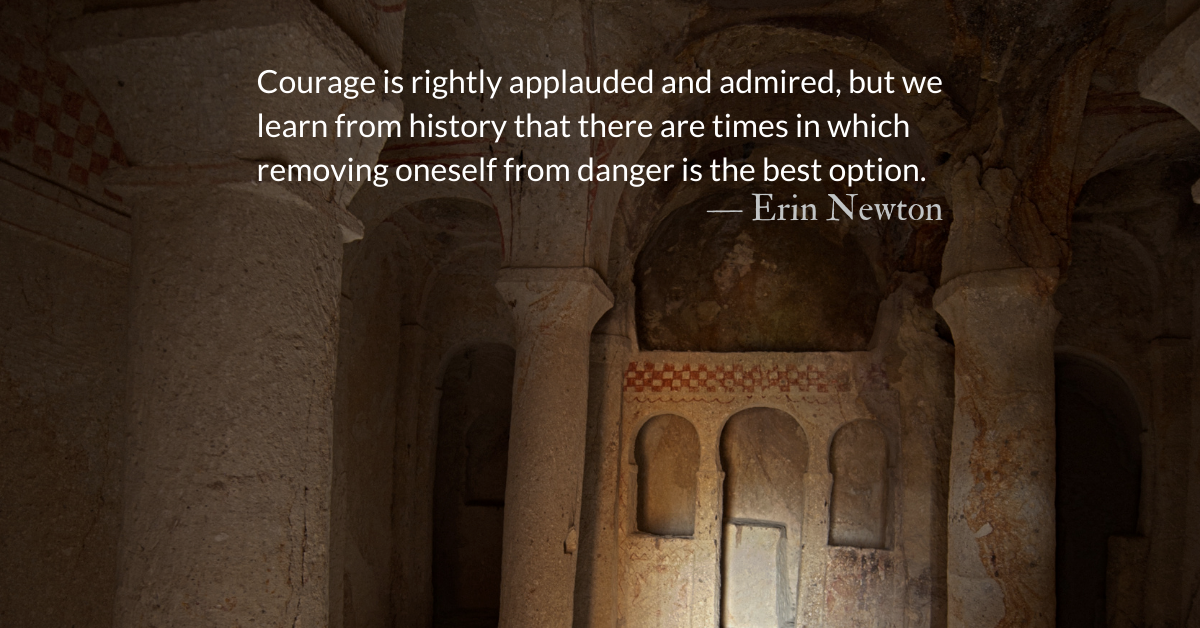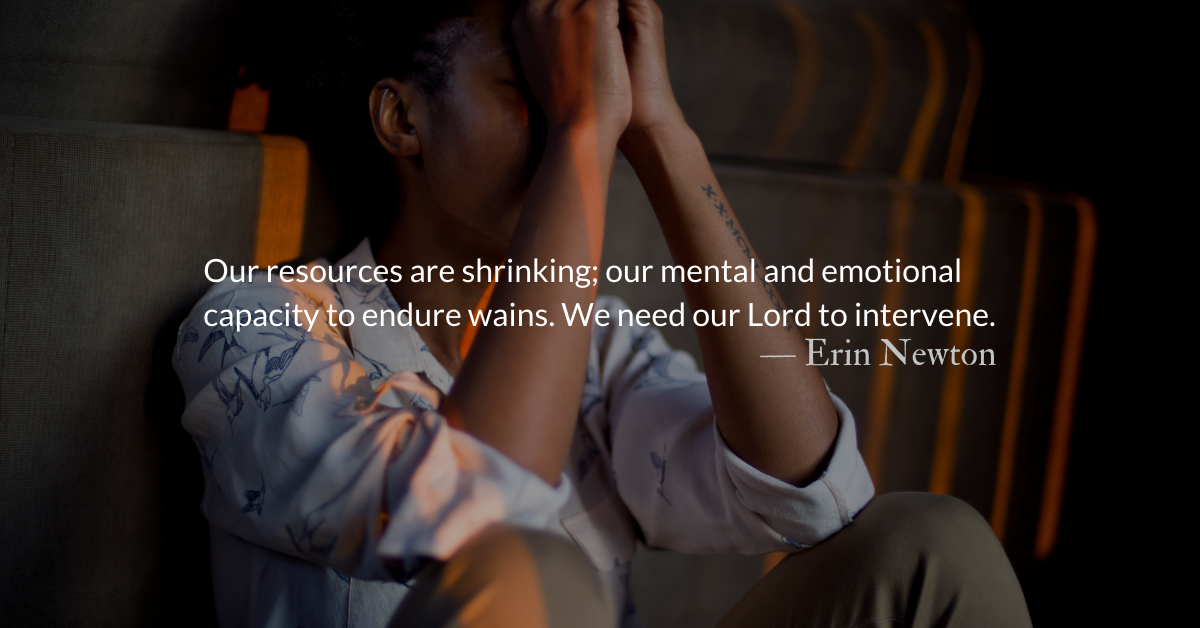Scripture Focus: Ecclesiastes 4.2-3
2 And I declared that the dead,
who had already died,
are happier than the living,
who are still alive.
3 But better than both
is the one who has never been born,
who has not seen the evil
that is done under the sun.
Reflection: Existential Dread
By Erin Newton
Something I have learned in counseling was the advice to let people express themselves without correction. Suffering leads us to heavy emotions with thoughts that are far from optimistic. The Teacher in Ecclesiastes sees suffering and declares that it is better for those who are not alive. This response feels out of place in a faith which declares the preciousness of life.
Ecclesiastes reveals the temporal nature of pleasure, possessions, wisdom, and life itself. Everything is futile. The mature Teacher is attempting to help others navigate the transitory nature of human existence. In the face of oppression without comfort, the truth is that only the dead avoid such pain.
Is it wrong to look at life this way? Is the Teacher promoting hopeless, meaningless existence? In the following chapters, the Teacher will point back toward enjoying life centered on God.
Our faith in God does not remove these moments of existential dread. Sometimes we feel the need to put on an air of optimism in bad circumstances. It can be tempting to hide our emotions even in our prayers. However, pain needs to be voiced. Understanding that pain exists in the world of the living is not an unfaithful observation.
The Bible gives us examples of people who have faced this type of despair. Elijah felt the pain of suffering without comfort. He sat under a tree and hoped he could die (1 Kings 19). But God was not finished with the prophet. Similar to what the prophet learned, the book of Ecclesiastes does not end with a defeatist attitude. Wisdom leads us to God.
Through Paul’s words, we see the release from suffering through death but also the value of fulfilling God’s purpose through living.
For to me, to live is Christ and to die is gain. If I am to go on living in the body, this will mean fruitful labor for me. Yet what shall I choose? I do not know! I am torn between the two: I desire to depart and be with Christ, which is better by far; but it is more necessary for you that I remain in the body. Convinced of this, I know that I will remain, and I will continue with all of you for your progress and joy in the faith… (Philippians 1.21-25)
Existential dread is answered in a life with God.
Divine Hours Prayer: The Call to Prayer
Let us make a vow to the Lord our God and keep it; let all around him bring gifts to him who is worthy to be feared. — Psalm 76.11
– From The Divine Hours: Prayers for Springtime by Phyllis Tickle.
Today’s Readings
Ecclesiastes 4 (Listen – 2:18)
Psalm 106 (Listen – 4:52)
Read more about What to Expect When Suffering
When in suffering, we can at times be surprised by the emotions that are stirred. We can encounter deep sadness, anguish, and even rage.
Read more about Helping Fathers and the Fatherless
May we…introduce…a definition and example of fatherhood that is based on the love that God has shown us.






